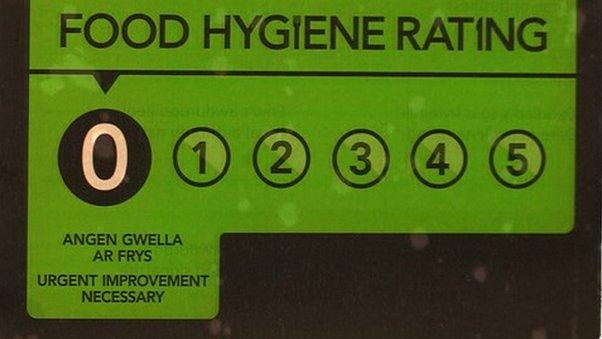Food hygiene ratings: 'A zero isn't down to paperwork'
- Published

Peter Cole says he has seen cockroach and rat infestations over the course of his career
Businesses are not given a zero food hygiene rating for "bad paperwork" and "filthy" premises can be shut down immediately, a food safety officer has said.
Peter Cole, lead environmental health officer in food safety at Pembrokeshire council, said myths circulate about the "scores on the doors" system.
The Food Standards Agency, and Mr Cole, say the system has improved standards.
But, Mr Cole added, a zero rating reflects failures across the board.
"To get a zero, there would be things like cross-contamination between raw meat and ready-to-eat products, pest infestations, it really is the worst level of compliance and they are very few and far between," he said.
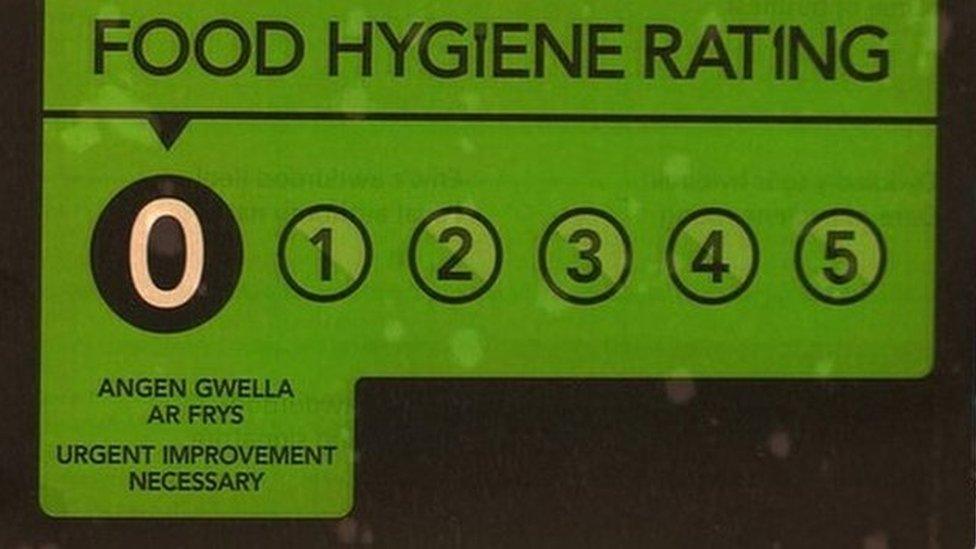
Businesses are legally obliged to display their score in Wales, but in England it is only advised
In November 2013, Wales became the first UK nation to require food outlets to display their inspection ratings, external - and following its success, the FSA says it should extend to England, with plans to be submitted for ministerial consideration in 2020.
The proportion of businesses with a rating of five has increased by 24 percentage points since the first ratings were issued in 2013, compared to 17 percentage points in England over the same period.
According to the FSA's website, 34 premises in Wales have a food hygiene score of zero.
It said it should be possible for all food businesses, no matter on their size or nature, to get a rating of five and 94% of respondents to a survey in Wales reported having seen a ratings sticker - meaning customers are noticing.
Mr Cole, who has worked in environmental health for 27 years, said the ratings system has "drastically" improved standards.
He is also a member of the Wales Food Safety Expert Panel and the Wales Steering Group for Food Hygiene Ratings, both of which "are involved in ensuring that food safety enforcement and food hygiene ratings are carried out effectively and consistently in Wales".
What are food hygiene ratings?
They give a snapshot of an establishment's standards at the time of an inspection - with the FSA saying it is businesses' responsibility to comply with those standards at all times.
If hygiene is very good and the business fully complies with the law, five is the top of the scale and the highest score they can achieve. They must do well in three areas:
How hygienically the food is handled
The physical condition of the business
How the business manages ways of keeping food safe, looking at processes, training and systems to ensure good hygiene is maintained
A zero indicates failures across all three areas.
If businesses are awarded a score lower than five, the local authority officer will explain what action they can take to improve.
"It's another myth that somewhere with a low score is filthy and we issue a rating and walk away, when we should close it down," Mr Cole said.
"We always will go back and ensure issues are remedied."
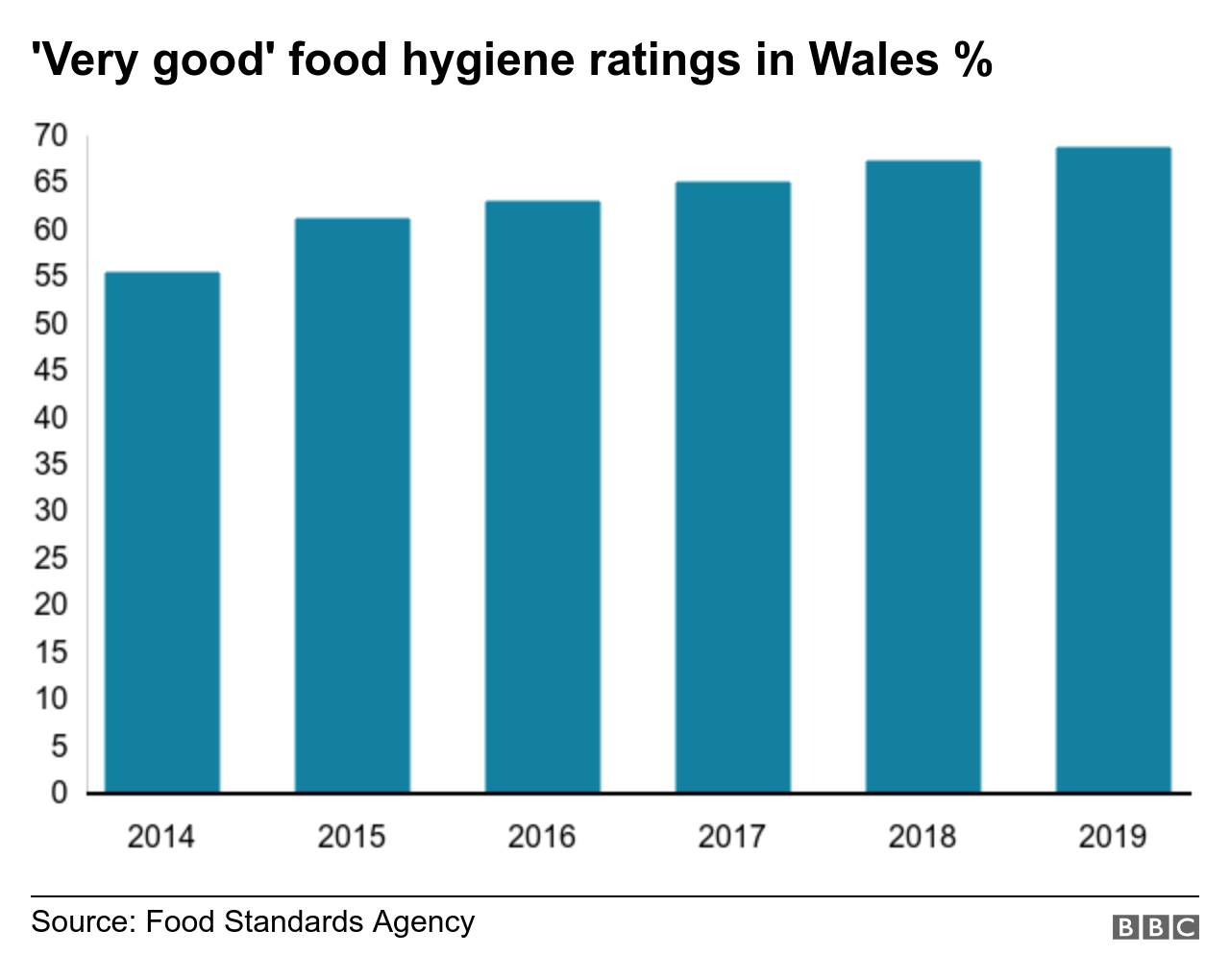
The percentage of Wales businesses achieving a rating of five has gradually increased over the years
Businesses have to apply to be rated again prior to the next scheduled inspection, so even if the improvements are made, this may not be immediately reflected in their score, Mr Cole said.
But if somewhere poses a risk to public health, part or all of the business can be shut down until it is made safe.
"In a long career you come across all sorts of things," Mr Cole said.
"Rat infestations, mice infestations, cockroach infestations which are very rare, but it does still happen, and we have to take immediate action.
"In others, it's just lack of knowledge and awareness of cross-contamination which can be alarming sometimes."
The frequency of inspections depends on the potential risk to health - so a small retailer selling pre-packed food may only be seen once every two years, while hospitals serving food to vulnerable patients may be visited as often as every six months.
If a council receives a complaint from a customer or organisation about a business which suggests standards are not being maintained, it may pay an unscheduled visit and issue a new rating.
Businesses can appeal their ratings - though Mr Cole said few do, preferring to "knuckle down" and address the issues.
Are premises warned they will be inspected?
Very rarely, Mr Cole said.
"We turn up, we don't make appointments. We try and get a picture of what's going on and it does throw some people, but there are good reasons for it.
"But if people are only working very occasionally for example in a domestic kitchen where cake-making happens very rarely, if we've not got too many concerns and we don't think they're trying to pull the wool over our eyes, there are occasions we would have to make an appointment."
What are food hygiene inspectors looking for?
Inspectors do not look at the quality of the food and service, culinary skill, presentation or comfort.
"We look at hygiene practices: Are they washing their hands regularly? Is food stored at the right temperature?" Mr Cole said.
They will check whether vegetables, fruit and salads are washed thoroughly, frozen foods defrosted safely, and ensure staff are aware of allergy hazards.
"We look at structure, the condition of the premises, the walls, floors and ceilings. Can the equipment be effectively cleaned? Is there the right amount of sinks?
"You hear 'I got a one, but it's just because of paperwork' like it's an excuse, but that's quite deliberately a slant on the scheme."
But Mr Cole says businesses need to be able to demonstrate things like "cooking temperatures, how quickly things are getting into fridges, the temperatures of the fridges".
What if businesses do not comply?
In Wales and Northern Ireland, displaying the score a business is awarded on the premises is mandatory.
If a business does not display the score, or misleads the public into thinking its score is higher than it is, it can be issued with a fine, and if problems continue it may be taken to court - and several owners have been prosecuted.
While prosecuting is not done lightly, Mr Cole said it will be done when necessary.
In general, however, he says most businesses have embraced the inspection system, and even use visits as an opportunity to ask advice.
"We do get a whole range of responses, some people are welcoming, some look forward to us coming and other people are a bit more 'oh not them again'.
"Generally people are used to it now."
An owner can also end up banned from running a food business, with the FSA keeping a list which is shared with all local authorities in Wales, England and Northern Ireland.
- Published13 January 2020
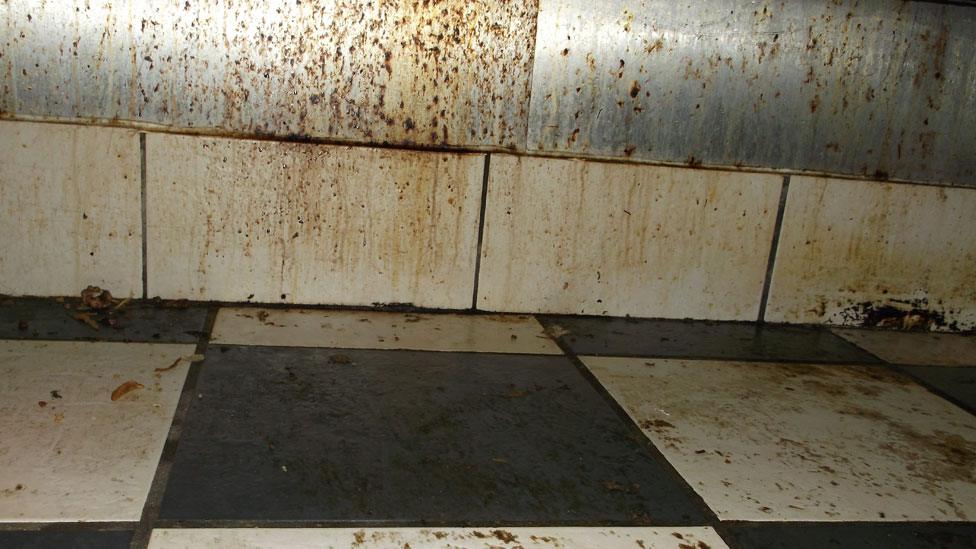
- Published26 June 2019

- Published20 February 2019

- Published17 October 2018
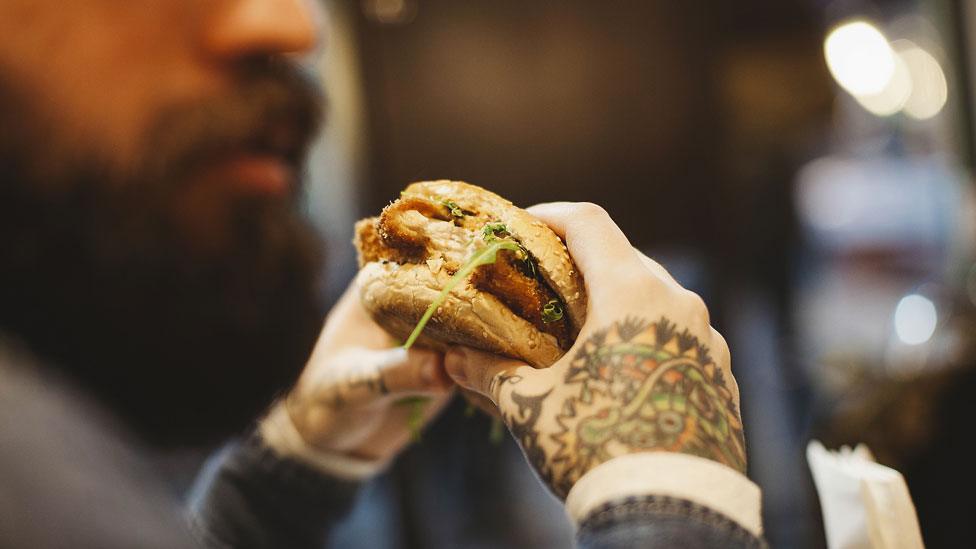
- Published9 February 2015
